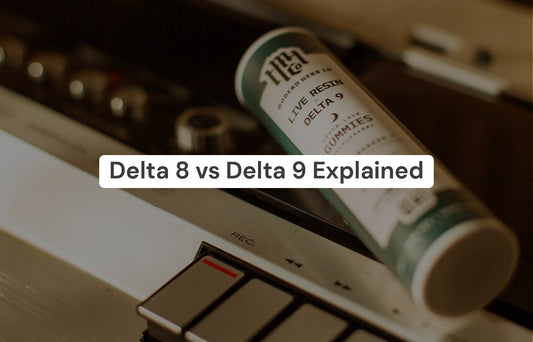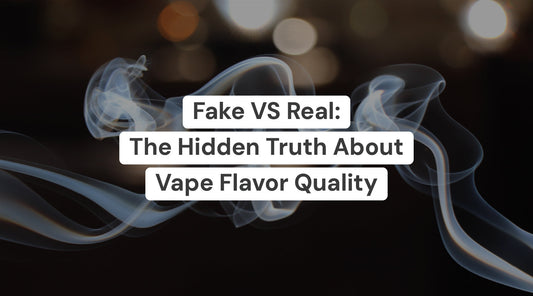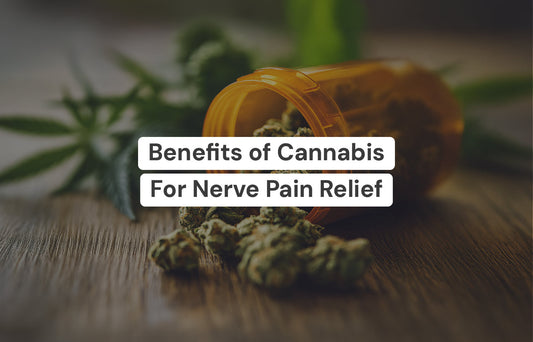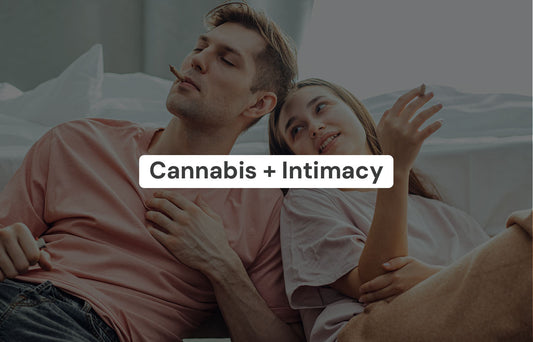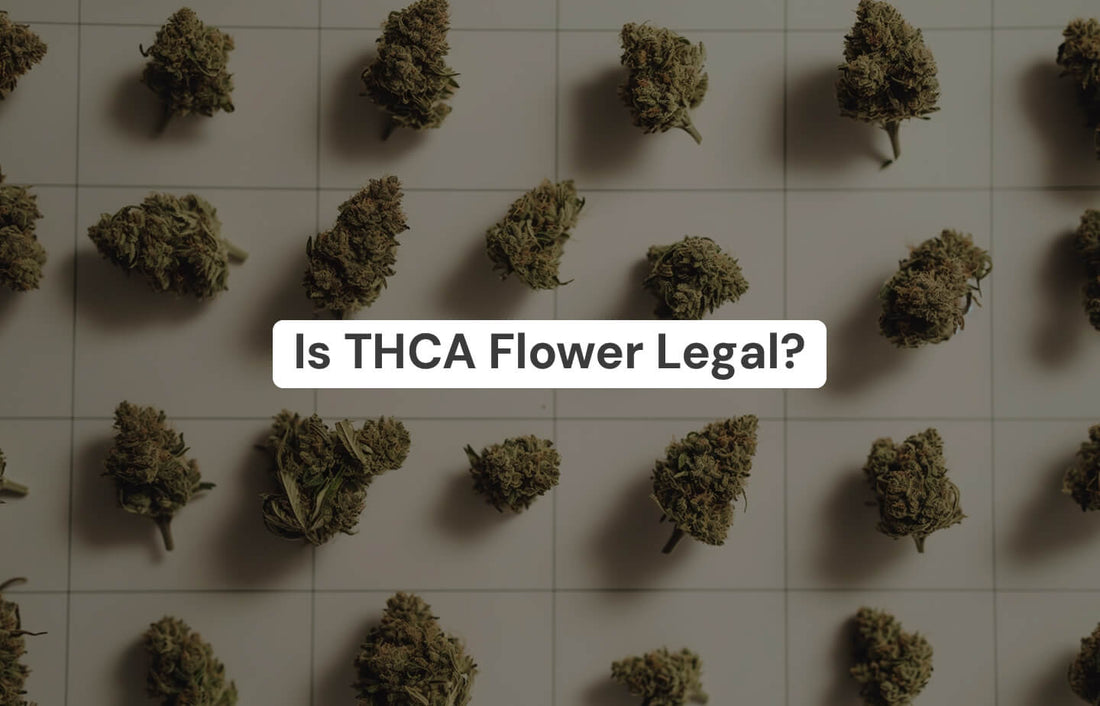
Is THCa Flower Legal? - The Comprehensive Guide
The legal status of THCA flower is a hot topic, and for good reason. Here at The Hemp Collect, we're right in the thick of it, trying to make sense of the ever-evolving landscape.
In some states, the sale or production of smokable hemp is outright banned, making THCA hemp flower a no-go. Other states have murkier laws than a foggy morning, leaving us scratching our heads about “Is THCA flower illegal?”
This legal limbo creates a lot of gray areas and a ton of room for interpretation. In this article, we'll dive into the current regulatory status of THCA Flower across the US and offer tips on determining if you can legally purchase them in your state. Let's clear up the confusion together!
Table of content
Key Takeaways
- Patchwork Legality: The legality of THCA flower varies significantly across states, with some allowing it, others outright banning it, and many in a gray legal area.
- Total THC Laws: States with 'total THC' laws, which account for THCA converting to THC, typically prohibit THCA flower, as it often exceeds legal THC limits after decarboxylation.
- Federal Perspective: Under the 2018 Farm Bill, THCA flower is legal federally as long as it contains less than 0.3% delta-9 THC by dry weight, but state regulations can override this.
- Practical Advice: To avoid legal issues, consumers should be discreet with THCA flower and always check their state's specific hemp and THC regulations.
Is THCa Flower Legal in My State?
Alright, let's get real for a second. The legality of THCa flower varies from state to state, like flavors in a hemp sampler pack. Some states are cool with it, and others are not so much. It's a patchwork quilt of regulations out there, and you've got to know your local laws before diving in.
The legal status of this kind of flower under state law is determined by a number of criteria. The two most significant are the following: the total THC content of post-harvest hemp and the total THC content of completed hemp products. In summary, THCA flower is probably prohibited if the state tests hemp crops after harvest and has a total THC law for completed hemp products.
What's the Total THC Law?
The 'total THC' regulation mandates that we at The Hemp Collect test the THC levels of our finished hemp products after decarboxylation. This process, where THCA in hemp flower transforms into delta-9 THC upon heating, is crucial for compliance. Decarboxylation is a testing method used to gauge a crop's THC concentration before harvest by accounting for the potential conversion of THCA to THC. The resulting test calculates the total available THC in the crop, summing the contents of both THC and THCA.
While federal law only requires total THC testing for pre-harvest hemp, certain states extend this requirement to finished hemp products and post-harvest hemp.
Oregon exemplifies this approach by enforcing a total THC standard for post-harvest hemp. Oregon's regulations stipulate that any hemp product exceeding 0.3% total THC cannot be sold to users unless the vendor holds a recreational or medical marijuana license.
Louisiana presents another case. The state prohibits the sale of hemp for inhalation and mandates that usable hemp products made, sold, and distributed within its borders must not surpass a total THC concentration of 1% by dry weight.
Under current Louisiana regulations, THCA hemp flower and any usable hemp product that exceeds the total THC limit are deemed illegal.
Some industry lawyers argue that the total THC standard conflicts with federal law, as it alters the definition of hemp and hemp products, which are legally defined by their delta-9 THC levels alone.
Is THCa Flower Legal Federally?
At The Hemp Collect, we like to keep things straightforward. Technically, THCa flower is legal at the federal level.
Sure, there are some legal risks involved with buying THCa flower in certain states, but the gist is this:
Under the 2018 Farm Bill, the distinction between hemp and marijuana boils down to the delta-9 THC levels by dry weight. Hemp is defined as any Cannabis sativa plant with delta-9 THC levels below 0.3%.
So, any hemp flower with high THCa levels but below 0.3% delta-9 THC is considered legal.
These rules align with other laws and provisions related to cannabis legality:
- The Controlled Substances Act of 1970 classified the marijuana plant as a Schedule I drug but didn’t address THCa.
- The Farm Bill of 2014 removed hemp from the definition of marijuana and allowed its use for research.
- The 2018 Farm Bill reaffirmed that hemp is different from marijuana because of its low delta-9 THC levels. According to this bill, any derivative or substance from hemp containing less than 0.3% delta-9 THC is legal.
- The DEA’s Hemp Rule (Interim Final Rule) of 2020 clarified that hemp and hemp-derived substances with less than 0.3% delta-9 THC by weight are not considered marijuana. It also specified that hemp tetrahydrocannabinol is excluded from the definition of marijuana.
- In 2022, the DEA released an opinion on cannabis seeds, stating that “marihuana seed” with less than 0.3% delta-9 THC by dry weight is not a controlled substance and is considered hemp. This means that regardless of whether the seed comes from hemp or marijuana, as long as it has less than 0.3% THC, it’s legal.
So, in a nutshell, THCa flower with low delta-9 THC levels is federally legal. Just keep an eye on state regulations to avoid any potential legal hiccups.
Total THC Law for Pre-Harvest Hemp
Here at The Hemp Collect, we know that each state has its own rules when it comes to pre-harvest hemp testing. Some states test for total THC, while others only check for delta-9 THC.
According to Rod Knight, a well-known cannabis lawyer, the total THC rule is really about hemp production since the USDA doesn’t regulate harvested hemp.
So, if a pre-harvest hemp sample passes the total THC test (THCa + THC), it’s considered lawful hemp. Once harvested, the THCa concentration doesn’t fall under the USDA’s total THC regulations.
For harvested hemp flower as a product, the key metric is the delta-9 THC levels by dry weight—just like all hemp-derived products on the market.
However, if a state requires hemp-derived products to have less than 0.3% total THC, this rule would apply to harvested hemp flower too, making THCa flower illegal to sell in that state.
What Is a High THCa Flower?
At The Hemp Collect, we're excited about THCA Flower, the hottest product in the hemp market right now. It’s essentially hemp bud that delivers the psychoactive effects similar to marijuana.
THCA flower is packed with high levels of THCA and low levels of delta-9 THC. When you heat it, the THCA—a cannabinoid that’s biologically inactive and doesn’t get you high—transforms into delta-9 THC, which does get you high.
The key difference between THCA flower and marijuana flower is the delta-9 THC content. For THCA flower to be considered lawful hemp, its delta-9 THC levels must be below 0.3% by dry weight.
Is It Possible to Create a High THCa Flower Naturally?
According to farmers, it's definitely possible. They test their hemp within 30 days of harvest, as required by the USDA, which now mandates testing for total THC. So, how can these plants have high levels of THCa and still be considered hemp? It’s all about perfect timing.
Farmers test at the earliest opportunity (within that 30-day window before harvest), ensuring the flowers have no more than 0.3% delta-9 THC, allowing them to pass as hemp. This timing gives the flowers a chance to mature and develop substantial THCa levels, sometimes reaching up to 20% THCa.
These crops are classified as hemp because of their low THC levels measured pre-harvest. In fact, growers often test their hemp in the early weeks after flowering to minimize the risk of exceeding the THC threshold. Once harvested, hemp crops are no longer under the scrutiny of the Department of Agriculture.
Legality of THCa Flower in Every US State
THCA Flower Legality Across the United States
|
State |
Legal Standing |
Key Legislation or Regulations |
|
Alabama |
Permitted |
Senate Bills 225 and 66 |
|
Alaska |
Allowed |
State Statutory Code |
|
Arizona |
Uncertain |
Senate Bill 1098 |
|
Arkansas |
Probably Prohibited |
Senate Bill 358 |
|
California |
Presumably Banned |
Assembly Bill 45 |
|
Colorado |
Likely Not Allowed |
Senate Bill 23-271 |
|
Connecticut |
Presumably Illegal |
Senate Bill 6699 |
|
Delaware |
Presumably Allowed |
Senate Bill 266 |
|
Florida |
Permitted |
Senate Bill 1020 |
|
Georgia |
Allowed |
House Bill 213 |
|
Hawaii |
Prohibited |
State Administrative Regulations |
|
Idaho |
Banned |
House Bill 126 |
|
Illinois |
Permitted |
Senate Bill 2298 |
|
Indiana |
Prohibited |
State Code 35-48-4-10.1 |
|
Iowa |
Likely Prohibited |
State Hemp Act |
|
Kansas |
Banned |
House Bill 2167 |
|
Kentucky |
Prohibited |
State Administrative Rules |
|
Louisiana |
Banned |
House Bill 758 |
|
Maine |
Allowed |
Legislative Document 1749 |
|
Maryland |
Permitted |
House Bill 1123 |
|
Massachusetts |
Allowed |
Senate Bill 15 |
|
Michigan |
Presumably Banned |
House Bill 4517 |
|
Minnesota |
Unclear |
State Administrative Regulations |
|
Mississippi |
Prohibited |
House Bill 1234 |
|
Missouri |
Permitted |
Senate Bill 567 |
|
Montana |
Allowed |
House Bill 948 |
|
Nebraska |
Permitted |
Legislative Bill 657 |
|
Nevada |
Allowed |
Senate Bill 123 |
|
New Hampshire |
Likely Prohibited |
House Bill 789 |
|
New Jersey |
Presumably Allowed |
Assembly Bill 456 |
|
New Mexico |
Permitted |
Senate Bill 789 |
|
New York |
Likely Allowed |
Senate Bill 1234 |
|
North Carolina |
Presumably Permitted |
House Bill 456 |
|
North Dakota |
Allowed |
Senate Bill 789 |
|
Ohio |
Likely Permitted |
House Bill 567 |
|
Oklahoma |
Presumably Allowed |
Senate Bill 890 |
|
Oregon |
Permitted |
House Bill 234 |
|
Pennsylvania |
Likely Allowed |
Senate Bill 456 |
|
Rhode Island |
Presumably Permitted |
House Bill 123 |
|
South Carolina |
Likely Allowed |
Senate Bill 567 |
|
South Dakota |
Permitted |
State Codified Laws |
|
Tennessee |
Allowed |
Senate Bill 789 |
|
Texas |
Presumably Permitted |
House Bill 567 |
|
Utah |
Allowed |
Senate Bill 890 |
|
Vermont |
Likely Permitted |
House Bill 234 |
|
Virginia |
Presumably Allowed |
Senate Bill 456 |
|
Washington |
Likely Permitted |
House Bill 123 |
|
West Virginia |
Presumably Allowed |
Senate Bill 567 |
|
Wisconsin |
Permitted |
State Statutory Code |
|
Wyoming |
Likely Allowed |
House Bill 789 |
Alright, grab your map, and let's take a whirlwind tour of the legal states of THCa across the USA. Remember, this info is current as of our last update, but laws can change faster than you can say "hemp," so always double-check!
THCA Flower Legality by State:
- Alabama
- Legal if under 0.3% delta 9 THC by dry weight.
- Adults 21+ can purchase, use, and possess THCA flower.
- Alaska
- Legal: THCA is not classified as a controlled substance.
- No testing for total THC levels in finished products.
- Arizona
- In a gray area; follows the 2014 Farm Bill.
- Hemp THCA is not clearly exempt from controlled substances.
- Arkansas
- Likely illegal due to total THC testing requirements.
- California
- Likely illegal; includes THCA in total THC calculations.
- Ban smokable hemp products.
- Colorado
- Likely illegal; stringent total THC and CBD to THC ratio requirements.
- Connecticut
- Likely illegal; tests for total THC in finished products.
- Delaware
- Likely legal; no total THC testing, no restrictions on smokable hemp.
- Florida
- Legal if under 0.3% delta 9 THC by dry weight.
- No restrictions for adults 21+.
- Georgia
- Legal if under 0.3% delta 9 THC.
- No post-harvest THC testing.
- Hawaii
- Illegal: total THC law and ban on smokable hemp products.
- Idaho
- Illegal; only hemp with zero THC allowed.
- Illinois
- Legal if under 0.3% delta 9 THC by dry weight.
- No total THC testing for finished products.
- Indiana
- Illegal; the general ban on smokable hemp flower.
- Iowa
- Likely illegal; unclear definition but includes total THC calculations.
- Kansas
- Illegal; only allows hemp between registered processors.
- Kentucky
- Illegal; bans user sales of hemp flower.
- Louisiana
- Illegal; stringent total THC regulations for hemp products.
- Maine
- Legal; no total THC law and allows smokable hemp.
- Maryland
- Legal if under 0.3% delta 9 THC by dry weight.
- No total THC testing for finished products.
- Massachusetts
- Legal only if sold by licensed retail establishments.
- Michigan
- Likely illegal; includes THCA in total THC calculations.
- Minnesota
- Illegal; includes THCA in total THC levels.
- Mississippi
- Illegal; includes THCA in total THC calculations.
- Missouri
- Legal if under 0.3% delta 9 THC.
- No total THC law for finished products.
- Montana
- Likely legal; no clear definition for total THC.
- Nebraska
- Legal if under 0.3% delta 9 THC.
- No total THC law for finished products.
- Nevada
- Legal; excludes THCA from THC definition.
- New Hampshire
- Likely legal; no total THC limit for THCA.
- New Jersey
- Legal if under 0.3% delta 9 THC.
- No post-harvest THC testing.
- New Mexico
- Illegal; considers THCA conversion to THC.
- New York
- Illegal; includes THCA in total THC calculations.
- North Carolina
- Legal if under 0.3% delta 9 THC.
- No total THC testing for finished products.
- North Dakota
- Illegal; includes THCA in total THC calculations.
- Ohio
- Illegal; includes THCA in total THC calculations.
- Oklahoma
- Legal if under 0.3% delta 9 THC.
- No total THC testing for finished products.
- Oregon
- Illegal; stringent post-harvest THC testing and definitions.
- Pennsylvania
- Legal if under 0.3% delta 9 THC.
- No total THC testing for finished products.
- Rhode Island
- Illegal; stringent total THC regulations.
- South Carolina
- Legal if under 0.3% delta 9 THC.
- No total THC testing for finished products.
- South Dakota
- Gray area; legal if under 0.3% delta 9 THC, but smoking restrictions.
- Tennessee
- Legal if under 0.3% delta 9 THC.
- No restrictions for adults 21+.
- Texas
- Legal if under 0.3% delta 9 THC.
- Must be manufactured out of state.
- Utah
- Illegal; stringent total THC testing and definitions.
- Vermont
- Illegal; includes THCA in total THC calculations.
- Virginia
- Illegal; includes THCA in total THC calculations.
- Washington
- Legal if sold by licensed dispensaries.
- THCA is considered a cannabis product.
- West Virginia
- Illegal; includes THCA in total THC calculations.
- Wisconsin
- Illegal; stringent post-harvest THC testing.
- Wyoming
- Illegal; includes THCA in total THC calculations.
Don't Carry THCa Flower Around
Word to the wise: don’t go flashing your THCA flower around like it’s a backstage pass. Even though it might be legal in some states, law enforcement might not be up to speed on all the nuances of hemp regulations. Displaying it openly could lead to misunderstandings or unnecessary complications. You don’t want to end up in hot water because an officer mistakes it for something illegal. It’s best to enjoy your THCA flower discreetly to avoid any potential hassles.
Have You Tried Our THCa Flower Yet?
Now, not to toot our own horn, but at The Hemp Collect, we've got some pretty awesome THCa flower. It's like the Rolls Royce of hemp - top-notch quality, expertly cultivated, and always compliant with federal regulations. We're talking high THCa content with low delta-9 THC; all backed up by Certificates of Analysis. Don't just take our word for it - check it out for yourself!
FAQs on THCa Flower Legality
Does THCa Show Up On A Drug Test?
Yes, THCa can show up on a drug test. It's like wearing a disguise to a party - you might look different, but your friends (or, in this case, the test) will still recognize you. Don’t use THCA flower if you have a drug test coming up!
Is THCa Toxic?
No, THCa is not toxic. It is a naturally occurring cannabinoid that comes before THC.
What Is A Good THCa Percentage?
It depends on what you're after. If you're new to the game, 5-10% THCa might be your sweet spot. For seasoned hemp aficionados, 20% and above could be more your speed.
And there you have it, folks! The wild world of THCa flower legality. Remember, we're not lawyers, and this isn't legal advice. Always do your homework and stay on the right side of the law.
Do you have more questions related to THCa Flower? Here are a few THCa Flower-related articles.
Is THCA Flower Sprayed?
THCA Flower vs THC Flower: What is the Difference?
Want to learn more? Visit our blog section or contact us to clarify any doubts you may have. Our expert support team is here to help you.

About Ashley Dellinger
Ashley Dellinger is a trailblazer in the cannabis and hemp sectors, serving as the Director of Innovation at The Hemp Collect. With a keen visionary mindset, she not only propels advancements in these industries but also showcases her versatility as a seasoned professional writer based in Oregon. As a collaborative force, Ashley works alongside leading brands, processors, and retailers to elevate industry standards. Ashley Dellinger's work not only sets new benchmarks but also inspires others to pursue excellence. For a closer look into her insights and experiences, connect with Ashley on LinkedIn, Instagram, and Facebook.

